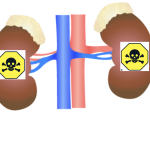The sleazy world of dietary supplements is hardly confined to the United States. In Japan, more than 100 people were sickened – and at least five died – after consuming a ridiculous product called Benikoji Choleste, aka red rice yeast. How can such a dangerous supplement be sold? The following should sound quite familiar.
statins
It has long been accepted that statins (cholesterol-lowering drugs) cause muscle pain. Everyone knows this. But a study published in Lancet tells us that only a small number of cases of muscle pain are actually from the drugs. Interesting and a bit surprising.
Statins prescribed to those with elevated cholesterol are among the most prescribed medications. Have you ever wondered how they protect users? (Even a little curious?) A new study on how plaque progresses is an opportunity to fill a gap in our understanding.
Statins, which are used in treating heart disease, are among the most widely prescribed medications in the U.S. Diabetes is associated with a very high risk of heart disease. So the thinking has been that a pre-emptive statin, before heart symptoms appear, would be beneficial for those patients. But statins accelerate the progression of diabetes. A new study tries to determine their downsides.
At least 10% of the U.S. population is currently taking a statin to help lower cholesterol. But can statins help prevent dementia? More importantly, can these same statins accelerate dementia? And how can we explain how statins are responsible for such dramatically different responses? Let's take a look.
The Lancet reports on a polypill containing aspirin, blood pressure medicine and a statin. For a large at-risk population, it reduced major cardiovascular events by 20 to 33% ... and for about $1.25 a month.
Those with elevated cholesterol frequently have identical risk factors for developing Type 2 diabetes. Statins are known to increase the incidence of diabetes. But is this a result of confounding or a separate concern? A new study tries to untie this Gordian knot of confounders.
Let's consider statins, a medication used by millions of Americans. Before we push to get more patients treated, perhaps we should get the ones already being treated to take their medications properly (if at all).
In the 60-and-older category, 50 percent of men and 38 percent of women are on cholesterol-lowering drugs. Is that really necessary?
Should we all be taking the cholesterol-lowering drugs known as statins? Even if one has never had a heart attack or stroke, should they be on a statin for so-called primary prevention? The USPSTF has reviewed the data and answers with a qualified "yes."
While it's true that statins are effective in preventing a recurrence of cardiovascular events (e.g. heart attack or stroke), the evidence that they are useful for primary prevention in older people isn't robust. Should the prescription of these drugs be extended to our expanding geriatric population, or is this an example of over-medicalization?
A recent meta-analysis published in BMJ Open journal suggests that LDL, which is commonly known as 'bad' cholesterol, does not increase the rate of death from heart disease. But before dumping your statins, it's important to review key flaws in the data.










